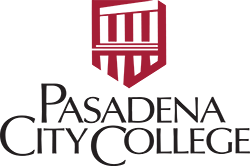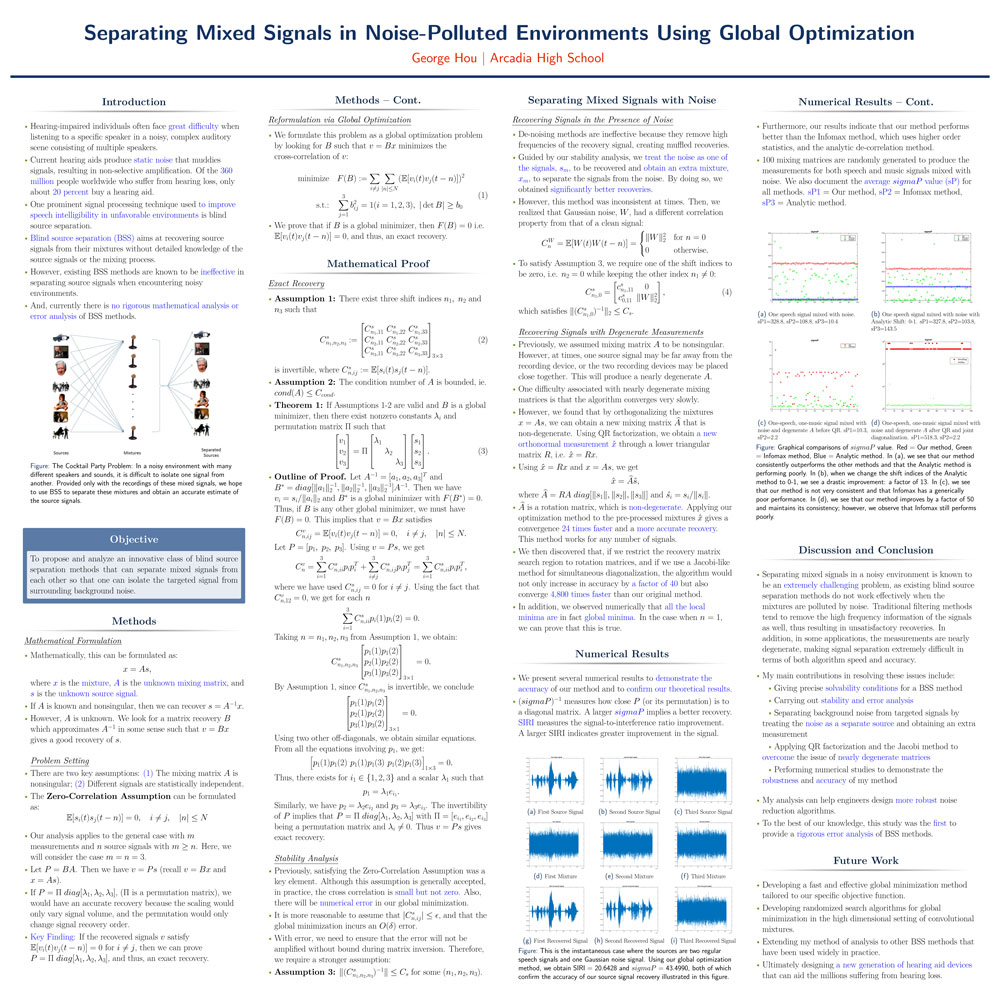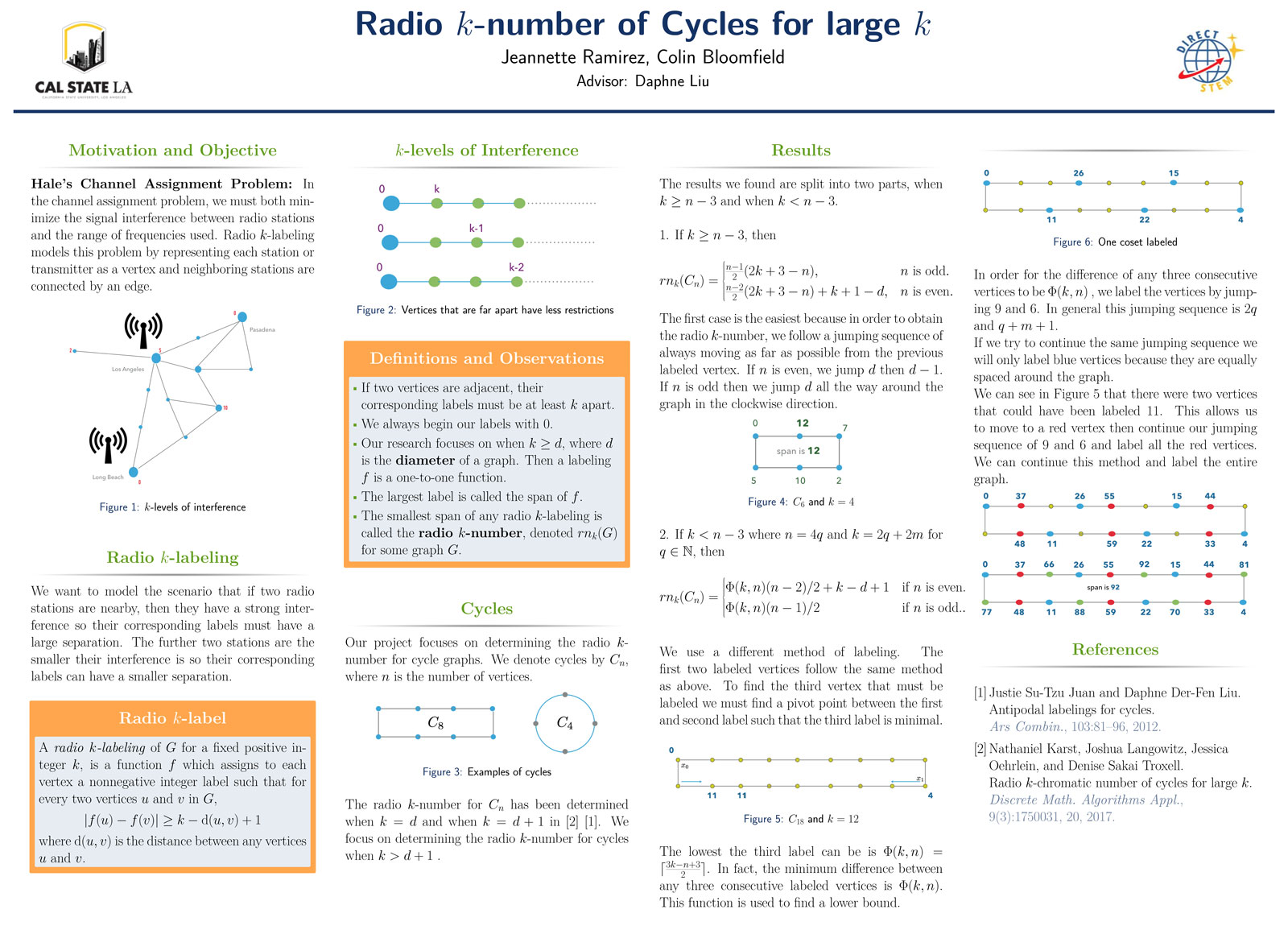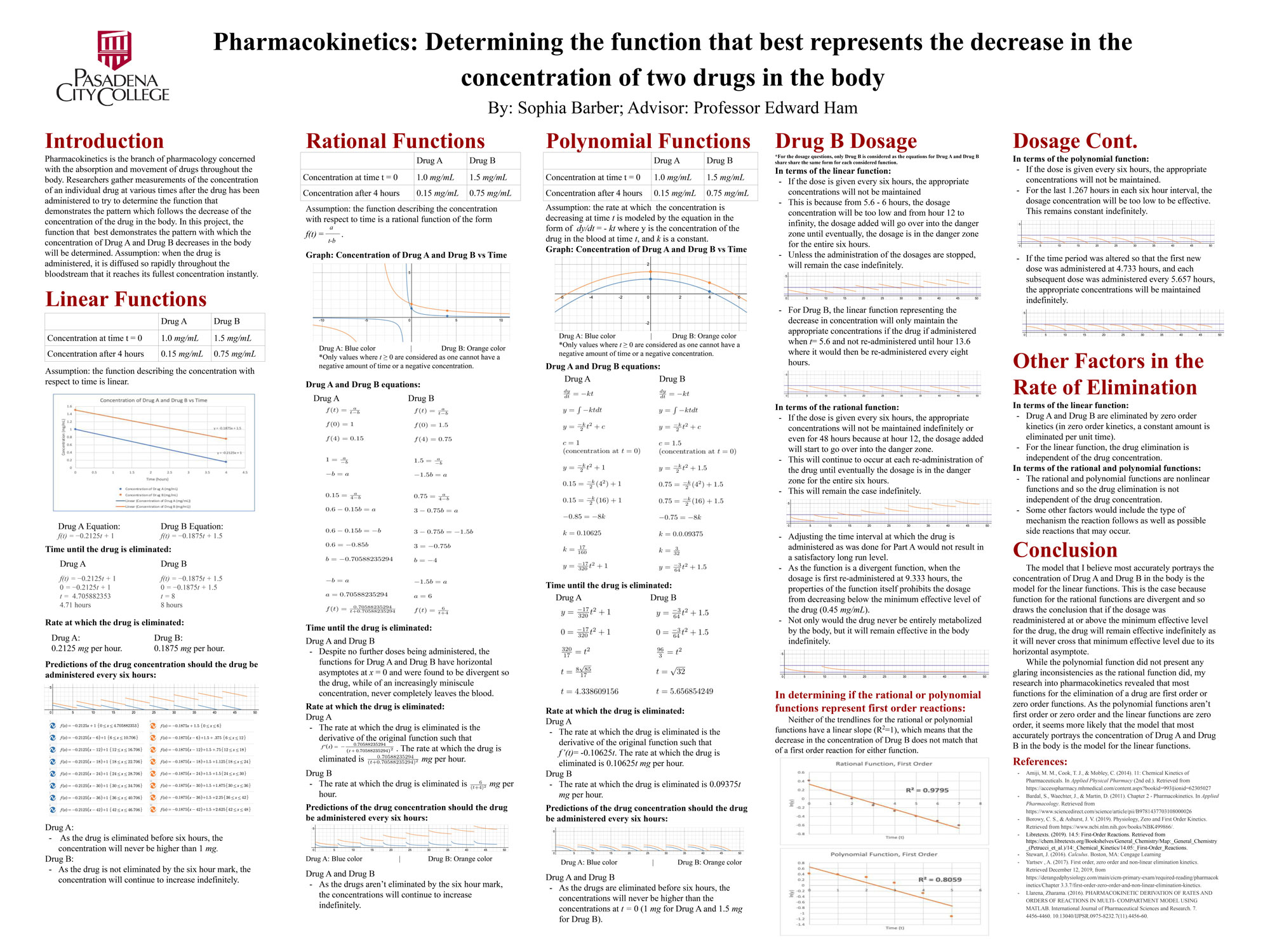Pi Day
Pi Day 2025 [AI Conference]
Day 1:Thursday, March 13Creveling Lounge, CC 201 |
Day 2:Saturday, March 15Creveling Lounge, CC 201 |
Registration: Day 1 |
Registration: Day 2 |
Pi Day 2025 Volunteer Registration
Become a Pi Day Volunteer
This is a "For Students, By Students" event. The goal is to promote the ownership of your math learning, to encourage you to talk about mathematics, to share your joy of learning mathematics, to develop better attitudes and mindsets needed to learn mathematics, to discover ways of overcoming difficulties or anxiety in learning mathematics, to connect mathematics with real-life applications, and to celebrate and share your victories in understanding mathematical concepts.
Deadline to submit your research poster presentation: TBA
(If you need Pi Club to print your poster, you must submit it online by TBA.)
We would like to invite you to make posters to showcase your research learning and present it at the Pi Day Conference!
Activity/Demo/Games/Presentation Form
Pi Day Presenters
- Cal State LA Math Department
- Cal State LA Math Club
- Caltech Aerospace Department
- Caltech LIGO Lab
- PCC Astronomy & Physics Club
- PCC Biology Club
- PCC Chemistry Club
- PCC Data Science Club
- Society of Hispanic Professional Engineers
- PCC MATE ROV Team
- PCC Math Success Center
- PCC MESA Program
- PCC Pi Club
Presentations:
Cal State LA: Crochet a Mobius Strip
We introduce the fascinating geometric shape called the Mobius Strip. Then attendees
will learn how to crochet a beautiful Mobius strip and bring your product home!
Dan Guo, Professor, Mathematics – Pasadena City College
Faculty supervisor: Dr. Daphne Liu - Cal State LA
Cal State LA: Pi Probability Game?
We play several fun games including dice games and others. How are these games related
to probability?
Jonathan Davidson, Graduate Students, Mathematics - Cal State LA
Faculty supervisor: Dr. Daphne Liu - Cal State LA
Aerospace Mentorship Program, Aerospace, Caltech: Experimental comparison of drone
propeller shapes
Presenters:
Emma Lenz, PhD student, Aerospace, Caltech
Micah Nishimoto, PhD student, Aerospace, Caltech
Afonso Mesquita, PhD student, Aerospace, Caltech
Seiji Yoshihara, PhD student, Aerospace, Caltech
Tara Venkatadri, PhD student, Aerospace, Caltech
Noel Esparza-Duran, Staff, Aerospace, Caltech
Liza Bradulina, Staff, Aerospace, Caltech
Faculty Supervisor: Dr. Jane Bae
Aerospace Mentorship Program, Aerospace, Caltech: "Inflating balloons, deflating
marshmallows"
Presenters:
Emma Lenz, PhD student, Aerospace, Caltech
Micah Nishimoto, PhD student, Aerospace, Caltech
Afonso Mesquita, PhD student, Aerospace, Caltech
Seiji Yoshihara, PhD student, Aerospace, Caltech
Tara Venkatadri, PhD student, Aerospace, Caltech
Noel Esparza-Duran, Staff, Aerospace, Caltech
Liza Bradulina, Staff, Aerospace, Caltech
Faculty Supervisor: Dr. Jane Bae
Aerospace Mentorship Program, Aerospace, Caltech: "Origami-like structures for on-orbit
space applications"
Presenters:
Emma Lenz, PhD student, Aerospace, Caltech
Micah Nishimoto, PhD student, Aerospace, Caltech
Afonso Mesquita, PhD student, Aerospace, Caltech
Seiji Yoshihara, PhD student, Aerospace, Caltech
Tara Venkatadri, PhD student, Aerospace, Caltech
Noel Esparza-Duran, Staff, Aerospace, Caltech
Liza Bradulina, Staff, Aerospace, Caltech
Faculty Supervisor: Dr. Jane Bae
PCC AI Club: AI Club's Project and Event Showcase
Description: AI Club will be presenting their club missions, goals, and projects that
they are currently working on, along with a fun, interactive AI robotic dog demonstration!
They will also present some major events and activities that they have planned for
this semester, so come check out and learn about how you can get involved!
Presenters: Evan Chou, Shin Aung, and AI Club members
Faculty Supervisor: Jamal Ashraf
PCC Physics and Astronomy Club: Angular momentum bike wheel and spandex Universe demonstration
Presenters: Nyra Dikranian, Dylan
Faculty Supervisor: Maria Okounkova
PCC Chemistry Club: pH and the Log Scale
Description: Exploring logarithms with hands-on experimentation.
Presenters: Harkirat Virdi, Student, Pasadena City College
Faculty Supervisor: Theodore M. Donnell, Professor, Chemistry, Pasadena City College
Career Technology Education (CTE) Division
Collaborative Robot Call the Universal Robot (UR) 3e: The UR3e is the smallest industrial
collaborative robot arm, which processes in tight workspaces, such as on bench-tops
or within production machinery.
Presenter: Prof. Jacob Tucker - Pasadena City College
PCC Data Science Club
1. Financial Data Project
2. Skunk Game
3. Project Name: Risk analysis of stocks and ETFS, DeLan,
Presenters: Timothy DeLange, Ashley Kang
Faculty supervisor: Professor Erin Shaw
PCC SHPE (Society of Hispanic Professional Engineers)
Description: Empower the Hispanic community through STEM education, access, and support
Presenters: Abbas Martinez, Henry Vargas, Mia Buenrostro
Faculty Supervisors: Prof. David Martinez & Prof. Antonio Del Real
PCC MATE ROV Team: Remotely Operated Vehicle
Presenters: Hyacinth Ang, Jonathan Beaton, Doug Foster
Description: Showcase PCC MATE team's 2024 Remotely Operated Vehicle
Faculty Supervisor: Prof. Jared Ashcroft, Chemistry, Pasadena City College
PCC Mesa
Faculty Supervisor: Prof. Julius Duthoy
Day 1 Schedule
(CC 201)
10:00 AM - 11:50 AM Interactive STEM Activites/Demonstrations
Watch live in-person in CC 201 or watch live on YouTube
11:50 AM - 12:00 PM Pi Day Welcoming Remarks
Watch live in-person in CC 201 or watch live on YouTube
Akki Akshit, President, Pi Club - PCC
Dr. Daphne Liu, Department Chair, Mathematics - Cal State LA
Carrie Starbird, Division Dean, Mathematics - PCC
12:00 PM - 12:50 PM Academic Panel - AI and Education: How to Use AI Smartly for Learning
Watch live in-person in CC 201 or watch live on YouTube
-
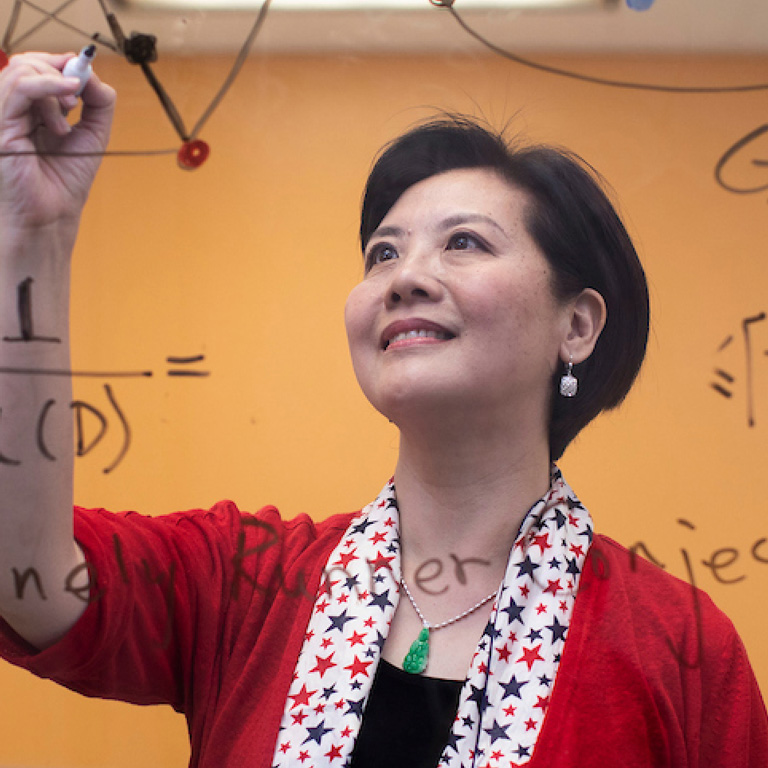 Daphne Liu, Department Chair and Professor, Mathematics (Co-Moderator) - CSULADr. Daphne Liu is a Professor and the Department Chair of Mathematics at California State University, Los Angeles, where she has been a faculty member for over 33 years. She is deeply passionate about teaching, research, and mentorship. Liu has mentored numerous students who have either earned or are currently pursuing Ph.D.s at other institutions. She has published more than 60 research papers, some of which were co-authored with students, and has received multiple research grants from the National Science Foundation. Liu is the recipient of the Cal State LA President’s Distinguished Professor Award (2019) and the Mathematical Association of America SoCal-Nevada Section Distinguished Teaching Award (2014).
Daphne Liu, Department Chair and Professor, Mathematics (Co-Moderator) - CSULADr. Daphne Liu is a Professor and the Department Chair of Mathematics at California State University, Los Angeles, where she has been a faculty member for over 33 years. She is deeply passionate about teaching, research, and mentorship. Liu has mentored numerous students who have either earned or are currently pursuing Ph.D.s at other institutions. She has published more than 60 research papers, some of which were co-authored with students, and has received multiple research grants from the National Science Foundation. Liu is the recipient of the Cal State LA President’s Distinguished Professor Award (2019) and the Mathematical Association of America SoCal-Nevada Section Distinguished Teaching Award (2014). -
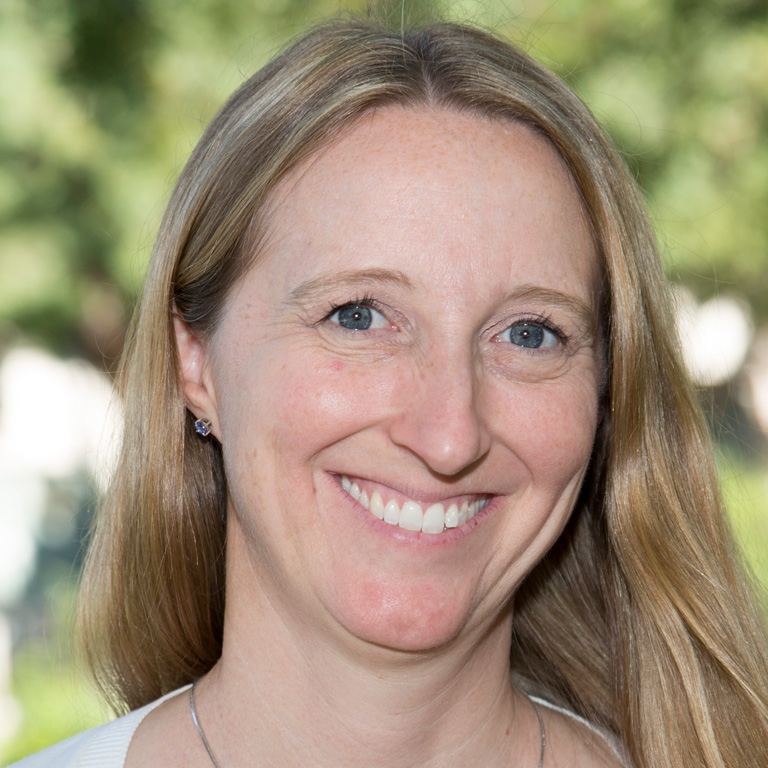 Carrie Starbird, Division Dean, Mathematics (Co-Moderator) - PCCDean Carrie Starbird transferred from PCC to Cal Poly San Luis Obispo to earn her Bachelor's Degree in Mathematics. After completing her Master’s Degree in Applied Mathematics from Cal Poly Pomona, she began her full-time teaching career at PCC, where she taught math for over 10 years. For the past decade, Dean Starbird has led the Mathematics Division through many changes, including Covid, hiring over a quarter of the division’s new faculty, and numerous legislative changes that have impacted community college mathematics students. Currently, Dean Starbird is also the Project Director for a Title III grant aimed at improving STEM students’ completion rates.
Carrie Starbird, Division Dean, Mathematics (Co-Moderator) - PCCDean Carrie Starbird transferred from PCC to Cal Poly San Luis Obispo to earn her Bachelor's Degree in Mathematics. After completing her Master’s Degree in Applied Mathematics from Cal Poly Pomona, she began her full-time teaching career at PCC, where she taught math for over 10 years. For the past decade, Dean Starbird has led the Mathematics Division through many changes, including Covid, hiring over a quarter of the division’s new faculty, and numerous legislative changes that have impacted community college mathematics students. Currently, Dean Starbird is also the Project Director for a Title III grant aimed at improving STEM students’ completion rates. -
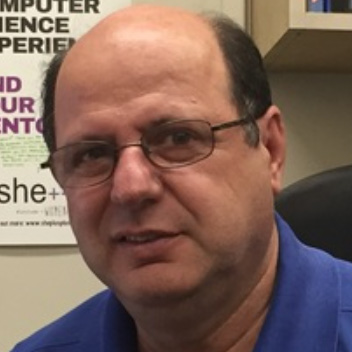 Jamal Ashraf, Professor, Computer Science - PCCJamal Ashraf is a senior faculty member at Pasadena City College, bringing over 30 years of experience in computer science education, with expertise in Python, Java, and data structures. Passionate about integrating artificial intelligence and data science into education, he developed PCC’s Data Science Certificate program, which has enabled over 150 students to gain advanced skills and secure opportunities at leading tech companies and universities. Beyond teaching, Jamal mentors student-led clubs such as AIML and She.Codes, organizes initiatives to empower women in technology, and leads innovative projects like NASA Swarmathon competitions. His dedication to equity in STEM and real-world applications has earned him recognition for fostering academic-industry connections and inspiring the next generation of technologists.
Jamal Ashraf, Professor, Computer Science - PCCJamal Ashraf is a senior faculty member at Pasadena City College, bringing over 30 years of experience in computer science education, with expertise in Python, Java, and data structures. Passionate about integrating artificial intelligence and data science into education, he developed PCC’s Data Science Certificate program, which has enabled over 150 students to gain advanced skills and secure opportunities at leading tech companies and universities. Beyond teaching, Jamal mentors student-led clubs such as AIML and She.Codes, organizes initiatives to empower women in technology, and leads innovative projects like NASA Swarmathon competitions. His dedication to equity in STEM and real-world applications has earned him recognition for fostering academic-industry connections and inspiring the next generation of technologists. -
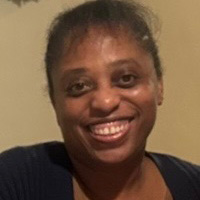 Katina Carranza, Student, Math and Computer Science - PCCKatina is a dedicated parent and a passionate student at PCC, where she is pursuing her studies in Math and Computer Science. She is deeply fascinated by the role numbers play in the natural world and enjoys exploring their connections to nature. In addition to her academic pursuits, Katina works in the Math Division where she continues to nurture her love for mathematics.
Katina Carranza, Student, Math and Computer Science - PCCKatina is a dedicated parent and a passionate student at PCC, where she is pursuing her studies in Math and Computer Science. She is deeply fascinated by the role numbers play in the natural world and enjoys exploring their connections to nature. In addition to her academic pursuits, Katina works in the Math Division where she continues to nurture her love for mathematics. -
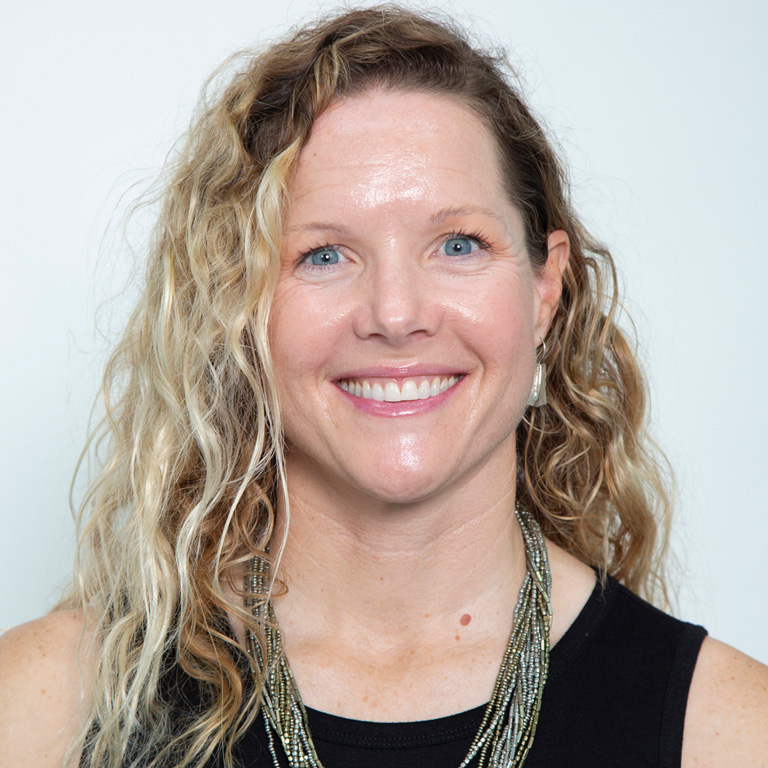 Dr. Rhea Presiado, Professor, Geography - PCCProfessor Rhea Presiado is a proud product of the community college system and teaches geography at PCC for the past 17 years. While at PCC, Rhea developed the first quality reviewed online course offerings in Geography, the Geography AA-T Degree, the first GIS Certificate, and spearheaded widespread OER textbook adoption across the Geography program. A leader in innovative teaching methods, her courses combine project-based learning with undergraduate research projects at local natural areas, and she has redesigned course assignments to adapt to AI technologies.
Dr. Rhea Presiado, Professor, Geography - PCCProfessor Rhea Presiado is a proud product of the community college system and teaches geography at PCC for the past 17 years. While at PCC, Rhea developed the first quality reviewed online course offerings in Geography, the Geography AA-T Degree, the first GIS Certificate, and spearheaded widespread OER textbook adoption across the Geography program. A leader in innovative teaching methods, her courses combine project-based learning with undergraduate research projects at local natural areas, and she has redesigned course assignments to adapt to AI technologies. -
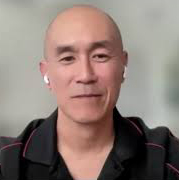 Dr. Roger Yang, Professor, Mathematics - PCCDr. Roger Yang is a mathematics professor at Pasadena City College with over two decades of experience in teaching, curriculum innovation, and faculty mentorship. He holds a PhD in Mathematics from the University of California, Irvine, and a BA in Computer Science and Mathematics from Cornell University. Dr. Yang has been a key contributor to several innovative initiatives, including the development of AI-infused curricula and Python-based mathematical modeling courses.
Dr. Roger Yang, Professor, Mathematics - PCCDr. Roger Yang is a mathematics professor at Pasadena City College with over two decades of experience in teaching, curriculum innovation, and faculty mentorship. He holds a PhD in Mathematics from the University of California, Irvine, and a BA in Computer Science and Mathematics from Cornell University. Dr. Yang has been a key contributor to several innovative initiatives, including the development of AI-infused curricula and Python-based mathematical modeling courses.
He also co-created SLAMTV, a video series designed to make statistics engaging and accessible. Dr. Yang’s work emphasizes leveraging AI to foster higher-order thinking in mathematics and exploring equitable teaching practices. With extensive experience in standards-based grading and professional development, he is dedicated to transforming education to meet the needs of the AI-driven era.
1:00 PM - 1:50 PM Python in Science Workshop
Watch live in-person in CC 201 or watch live on YouTube
Workshop Description: Computing is a vital component of all modern STEM research, and in this workshop, we'll begin to explore the intersection of science and computing. We'll program various simulations in Python together using Google Collaboratory, spanning various fields of physics and astrophysics. All you need is a laptop or tablet with a web browser.
-
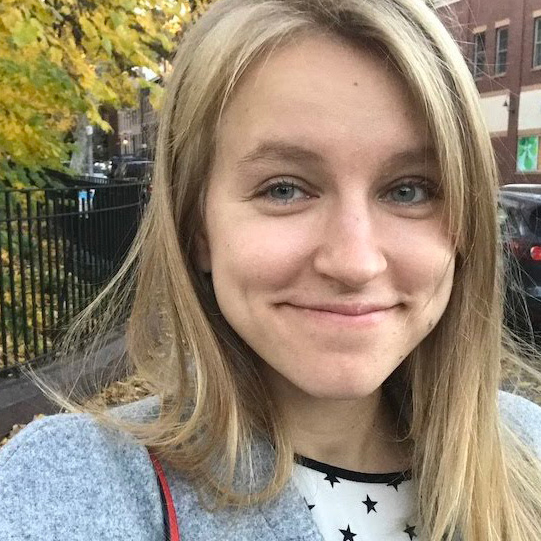 Dr. Maria Okounkova, Professor, Natural Sciences - PCCDr. Okounkova is a tenure-track physics and astronomy faculty member at PCC. She received her BA in Physics magna cum laude from Princeton University in 2014, with a minor in applications of computing, and her PhD in physics from Caltech in 2019, researching black holes and gravitational waves with Prof. Saul Teukolsky. Until she joined PCC, she was a Research Fellow at the Center for Computational Astrophysics at the Flatiron Institute in New York City. Her research interests involve black holes, general relativity, gravitational waves, and computational astrophysics, and she has over a dozen lead-author publications in her field. Dr. Okounkova is passionate about diversity, equity, and inclusion in STEM, and seeks to make this a focal point of her teaching and mentorship at PCC.
Dr. Maria Okounkova, Professor, Natural Sciences - PCCDr. Okounkova is a tenure-track physics and astronomy faculty member at PCC. She received her BA in Physics magna cum laude from Princeton University in 2014, with a minor in applications of computing, and her PhD in physics from Caltech in 2019, researching black holes and gravitational waves with Prof. Saul Teukolsky. Until she joined PCC, she was a Research Fellow at the Center for Computational Astrophysics at the Flatiron Institute in New York City. Her research interests involve black holes, general relativity, gravitational waves, and computational astrophysics, and she has over a dozen lead-author publications in her field. Dr. Okounkova is passionate about diversity, equity, and inclusion in STEM, and seeks to make this a focal point of her teaching and mentorship at PCC.
2:00 PM - 2:45 PM Build Your Own AI-Powered Project!
Watch live in-person in CC 201 or watch live on YouTube
Workshop Description: Join us on Pi-Day for a fun and quick AI/ML workshop where we’ll create a beginner-friendly
project that introduces the basics of Artificial Intelligence and Machine Learning.
Here, you’ll get hands-on experience working with simple AI models!
In this workshop, you will:
1) Learn how to utilize AI and ML to implement your own project.
2) Train and test a small AI model using accessible tools.
3) See real-time results and experiment with different inputs.
Presented by Artificial Intelligence Club
-
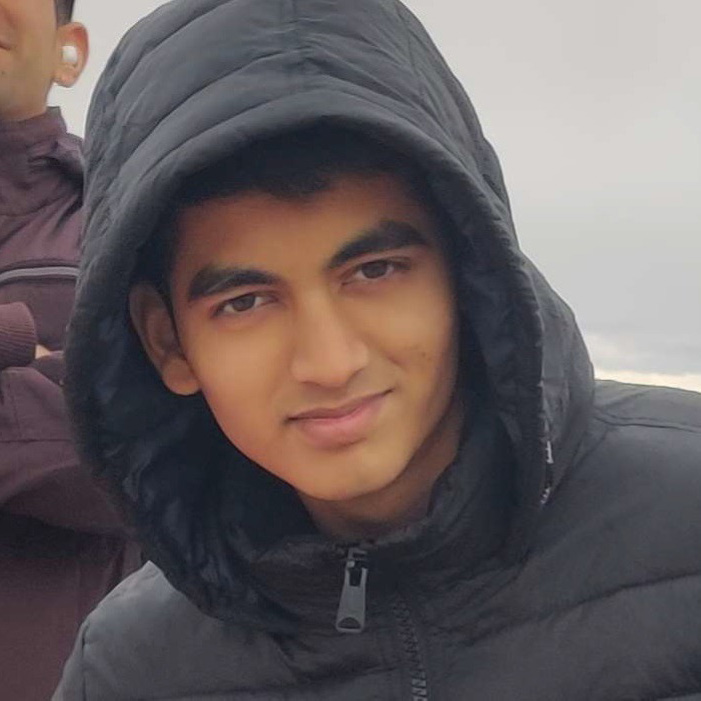 Akki Akshit, Student, Computer Science - PCCAkki Akshit is the president of the Pi Club and secretary of the AI &
Akki Akshit, Student, Computer Science - PCCAkki Akshit is the president of the Pi Club and secretary of the AI &
Machine Learning Club at Pasadena City College, where he studies computer
science. He’s passionate about using math and technology to solve real-world
problems and has led student initiatives focused on advanced math, AI, and
collaborative learning. Akki is currently participating in undergraduate
studies at Caltech through the LIGO project, working on gravitational wave
detection and data analysis. He plans to transfer to UC Irvine next semester to
further explore his interests in computer science and research. -
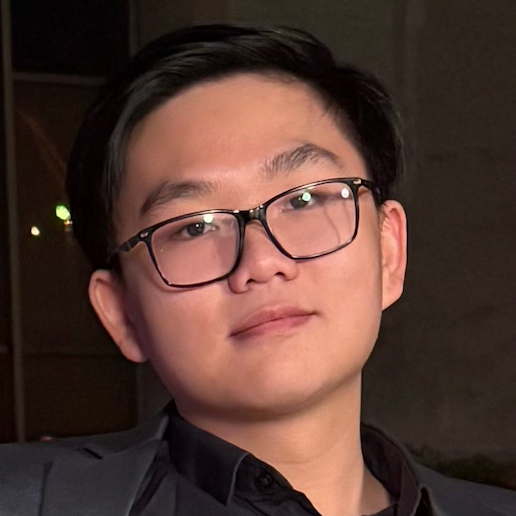 Shin Htet Aung, Student, Computer Science - PCCShin Htet Aung is a first-generation student at Pasadena City College. He plans to transfer to a four-year university majoring in Computer Science. Shin co-founded the AI and Machine Learning Club at PCC, and as its VP, he oversees a wide range of responsibilities from managing club activities and functions to organizing events for the club. Most recently, he completed the IDEAS Machine Learning Program with AI LA and earned the AI For Good and Machine Learning Specialization certificates through Coursera, further advancing his knowledge in AI. Lastly, he couldn’t resist his excitement to pass along a message to everyone, stating, “I’m thrilled and honored to be a part of Pi Day 2025 and am looking forward to connecting with everyone there!”
Shin Htet Aung, Student, Computer Science - PCCShin Htet Aung is a first-generation student at Pasadena City College. He plans to transfer to a four-year university majoring in Computer Science. Shin co-founded the AI and Machine Learning Club at PCC, and as its VP, he oversees a wide range of responsibilities from managing club activities and functions to organizing events for the club. Most recently, he completed the IDEAS Machine Learning Program with AI LA and earned the AI For Good and Machine Learning Specialization certificates through Coursera, further advancing his knowledge in AI. Lastly, he couldn’t resist his excitement to pass along a message to everyone, stating, “I’m thrilled and honored to be a part of Pi Day 2025 and am looking forward to connecting with everyone there!” -
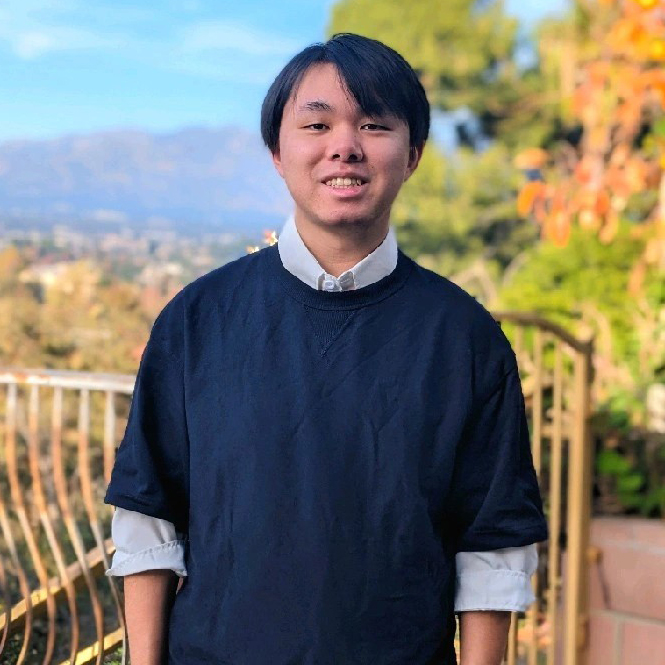 Evan Chou, Student, Computer Science - PCCEvan Chou is a 2nd-year Electrical Engineering student with a fervor for exploring the applications of AI and Machine Learning, and enjoys reading articles about the latest innovations in AGI and multimodal AI agent systems. In the 2024-2025 school year, he co-founded and became the President of the Artificial Intelligence and Machine Learning Club at PCC, a community where students of all different backgrounds and majors can learn about AI and its implications. Evan is also currently an AI Fellow in the Cerebras x BCV Fellowship program, where he is leveraging Cerebras Systems technology to accelerate real-world computational speeds of AI.
Evan Chou, Student, Computer Science - PCCEvan Chou is a 2nd-year Electrical Engineering student with a fervor for exploring the applications of AI and Machine Learning, and enjoys reading articles about the latest innovations in AGI and multimodal AI agent systems. In the 2024-2025 school year, he co-founded and became the President of the Artificial Intelligence and Machine Learning Club at PCC, a community where students of all different backgrounds and majors can learn about AI and its implications. Evan is also currently an AI Fellow in the Cerebras x BCV Fellowship program, where he is leveraging Cerebras Systems technology to accelerate real-world computational speeds of AI.
3:00 PM - 3:50 PM Deep Dive into Underwater ROV workshop
Watch live in-person in CC 201 or watch live on YouTube
Workshop Description: At our PI Day workshop, we'll dive into the world of MATE ROV, where we are building a submersible remotely operated vehicle designed for underwater exploration. Our team, which is split into mechanical, software, and electrical sub-teams, works collaboratively to create and refine the ROV's design, control systems, and power systems. This year, we're focusing on enhancing the vehicle's performance by improving its chassis, adding a new claw with a rotating wrist, and prioritizing waterproofing. We will discuss how we are able to perform such tasks and also talk about key quantitative concepts like vector analysis, which plays a crucial role in optimizing thruster configurations for better maneuverability. Join us as we explore the technology behind our ROV, discuss our vision for innovation, and share hands-on experiences with mini ROV replicas!
-
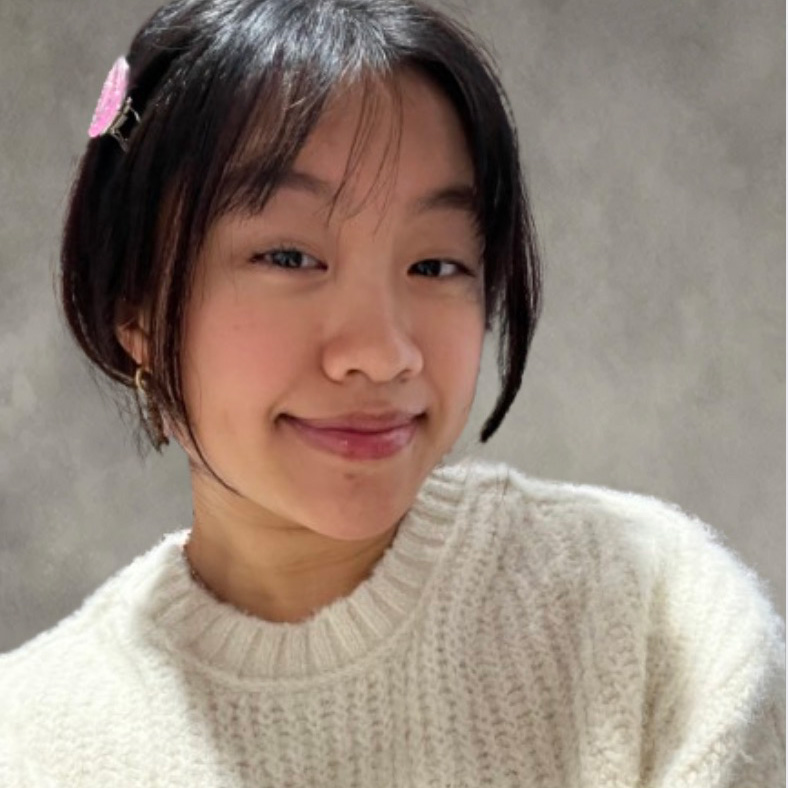 Hyacinth Ang, Student, Mechanical Engineering - PCCHyacinth Ang is a second year at Pasadena City College majoring in Mechanical Engineering. She is the Vice President of PCC’s Mate ROV team and co-lead of the Mechanical team. On the side, she has experience coaching a VEX robotics team and educating young elementary school students in Python.
Hyacinth Ang, Student, Mechanical Engineering - PCCHyacinth Ang is a second year at Pasadena City College majoring in Mechanical Engineering. She is the Vice President of PCC’s Mate ROV team and co-lead of the Mechanical team. On the side, she has experience coaching a VEX robotics team and educating young elementary school students in Python. -
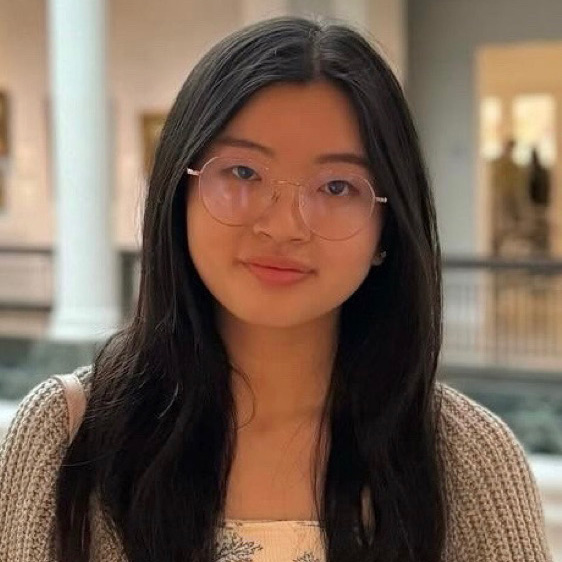 Chansereyroth Bun, Student, Mechanical Engineering - PCCChansereyroth Bun is attending Pasadena City College, and her major is Mechanical Engineering. She is on the mechanical team of the PCC MATE ROV Team.
Chansereyroth Bun, Student, Mechanical Engineering - PCCChansereyroth Bun is attending Pasadena City College, and her major is Mechanical Engineering. She is on the mechanical team of the PCC MATE ROV Team. -
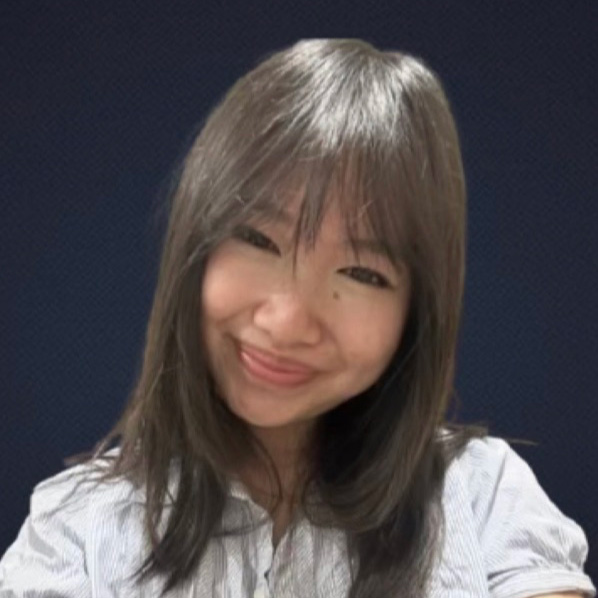 Trina Wan, Student, Civil Engineering - PCCTrina Wan is a second-year student attending Pasadena City College, majoring in Civil Engineering. She is an active member of the Mechanical Team in PCC's Mate ROV Program, where she contributes to the design and development of the underwater vehicle.
Trina Wan, Student, Civil Engineering - PCCTrina Wan is a second-year student attending Pasadena City College, majoring in Civil Engineering. She is an active member of the Mechanical Team in PCC's Mate ROV Program, where she contributes to the design and development of the underwater vehicle.
4:00 PM - 4:50 PM Career and Internships Panel
Watch live in-person in CC 201 or watch live on YouTube
-
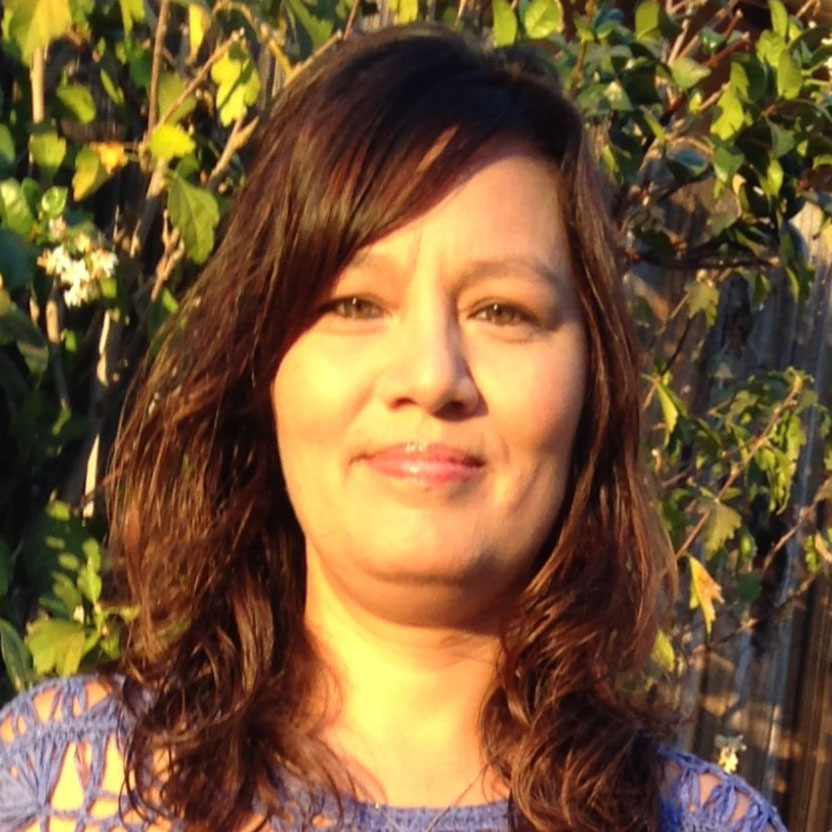 Dr. Veronica I. Jaramillo, Dean of Natural Sciences Division (Co-Moderator) - PCCDr. Veronica I. Jaramillo’s background in chemistry and mathematics, and interest in equitable education, have fostered her career in the community college. Dr. Jaramillo began her academic path at Moravian College earning a bachelor’s degrees in both mathematics and Chemistry. She then continued her studies at the University of Arizona where she earned her doctorate in Physical Chemistry. Her thesis involved the study of low temperature reaction dynamics of important chemical reactions in the stratosphere. After, Dr. Jaramillo worked at a startup company, Calhoun Vision, where she developed irradiation systems and techniques. Then she followed her passion for teaching and has been a chemistry faculty for the last 15 years at the community college and is currently the Dean of Natural Sciences at Pasadena City College. Dr. Jaramillo has been the principal investigator on a NSF grant devoted to incorporating early research experience for community college students. She has published a chapter and papers devoted to improving Chemical Education. Dr. Jaramillo has also been dedicated to community science outreach and has been an active member of the American Chemical Society (ACS) on both the local and national level. Dr. Jaramillo was awarded the Agnes Anne Green Distinguished Service award and honored as a 2021 ACS fellow in recognition for her research, extensive work with students in science education, and her impact on diversity in the STEM workforce through work with minority and economically disadvantaged students, as well as for her excitement, enthusiasm, and innovation of chemistry outreach through her service on the ACS Committee on Community Activities and to the Southern California local section.
Dr. Veronica I. Jaramillo, Dean of Natural Sciences Division (Co-Moderator) - PCCDr. Veronica I. Jaramillo’s background in chemistry and mathematics, and interest in equitable education, have fostered her career in the community college. Dr. Jaramillo began her academic path at Moravian College earning a bachelor’s degrees in both mathematics and Chemistry. She then continued her studies at the University of Arizona where she earned her doctorate in Physical Chemistry. Her thesis involved the study of low temperature reaction dynamics of important chemical reactions in the stratosphere. After, Dr. Jaramillo worked at a startup company, Calhoun Vision, where she developed irradiation systems and techniques. Then she followed her passion for teaching and has been a chemistry faculty for the last 15 years at the community college and is currently the Dean of Natural Sciences at Pasadena City College. Dr. Jaramillo has been the principal investigator on a NSF grant devoted to incorporating early research experience for community college students. She has published a chapter and papers devoted to improving Chemical Education. Dr. Jaramillo has also been dedicated to community science outreach and has been an active member of the American Chemical Society (ACS) on both the local and national level. Dr. Jaramillo was awarded the Agnes Anne Green Distinguished Service award and honored as a 2021 ACS fellow in recognition for her research, extensive work with students in science education, and her impact on diversity in the STEM workforce through work with minority and economically disadvantaged students, as well as for her excitement, enthusiasm, and innovation of chemistry outreach through her service on the ACS Committee on Community Activities and to the Southern California local section. -
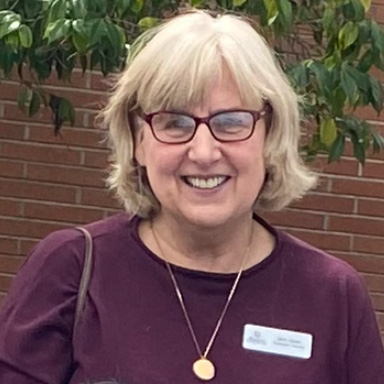 Erin Shaw, Professor, Computer and Data Science (Co-Moderator) - PCCErin Shaw is a second-year Instructor of Computer and Data Science at Pasadena City College. She is currently a co-PI on a CA Learning Lab grant to expand data science pathways and increase opportunities for CS/DS students through dual enrollment, student clubs, independent research, and competitions. Dr. Shaw spent 25 years as a National Science Foundation-sponsored researcher and co-PI in the fields of research computing, assessment workflows, intelligent tutors, and mathematics education. She earned a BS in Computer Science and Mathematics from Fitchburg State University, MA, an MS in Computer Graphics (Computer Science) from Cornell University, NY, and a Doctorate in Education from The Open University, UK.
Erin Shaw, Professor, Computer and Data Science (Co-Moderator) - PCCErin Shaw is a second-year Instructor of Computer and Data Science at Pasadena City College. She is currently a co-PI on a CA Learning Lab grant to expand data science pathways and increase opportunities for CS/DS students through dual enrollment, student clubs, independent research, and competitions. Dr. Shaw spent 25 years as a National Science Foundation-sponsored researcher and co-PI in the fields of research computing, assessment workflows, intelligent tutors, and mathematics education. She earned a BS in Computer Science and Mathematics from Fitchburg State University, MA, an MS in Computer Graphics (Computer Science) from Cornell University, NY, and a Doctorate in Education from The Open University, UK. -
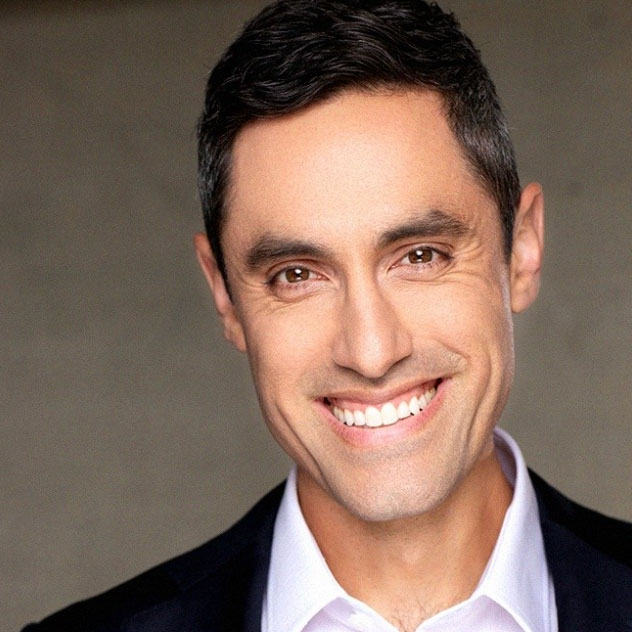 Sean Kamkar, Chief Technology Officer - Zest AISean is the Chief Technology Officer at Zest AI, where he leads the engineering and data science teams in developing cutting-edge AI solutions for credit lending. His teams focus on building robust systems, innovative AI applications, and scalable, transparent models that enhance performance, fairness, and automation in lending. Under Sean’s leadership, Zest AI has enabled hundreds of financial institutions to deploy AI/ML solutions that are not only powerful but also compliant and easy to implement.
Sean Kamkar, Chief Technology Officer - Zest AISean is the Chief Technology Officer at Zest AI, where he leads the engineering and data science teams in developing cutting-edge AI solutions for credit lending. His teams focus on building robust systems, innovative AI applications, and scalable, transparent models that enhance performance, fairness, and automation in lending. Under Sean’s leadership, Zest AI has enabled hundreds of financial institutions to deploy AI/ML solutions that are not only powerful but also compliant and easy to implement.
Sean holds a Ph.D. in Aeronautics and Astronautics Engineering from Stanford University and conducted postdoctoral research at NASA Ames Research Center. Before joining Zest AI, he led large-scale engineering initiatives, including managing over 200 engineers to improve the safety of aging U.S. natural gas pipelines. -
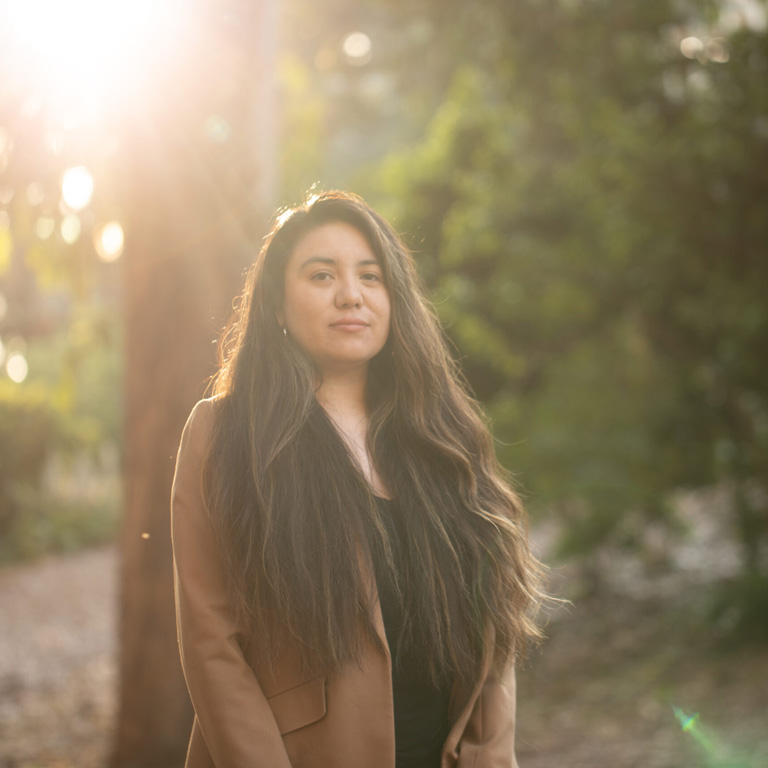 Ash Lopez, Author - CHANNEL KINDNESS: Stores of Community + KindnessAsh López is not a typical community college student. From caregiving to coding. Ash proudly brings her non-traditional background to academic spaces. She is a New York Times Bestselling Author with Lady Gaga for the book, “CHANNEL KINDNESS: Stores of Community + Kindness”. Ash is a Cornell Break Through Tech Alumni where she started her interest in AI and has since attended AI related programs at Northwestern + Harvard Edmond & Lily Safra Center for Ethics (IDEAS) and USC Viterbi School of Engineering. She currently runs a small tech consulting firm and serves as the AnitaB.org (Grace Hopper Conference) Undergraduate Board Trustee while she continues her studies. Ash has been featured in Paper Magazine, the MTV Music Awards, and the United Nations and Honor 21.
Ash Lopez, Author - CHANNEL KINDNESS: Stores of Community + KindnessAsh López is not a typical community college student. From caregiving to coding. Ash proudly brings her non-traditional background to academic spaces. She is a New York Times Bestselling Author with Lady Gaga for the book, “CHANNEL KINDNESS: Stores of Community + Kindness”. Ash is a Cornell Break Through Tech Alumni where she started her interest in AI and has since attended AI related programs at Northwestern + Harvard Edmond & Lily Safra Center for Ethics (IDEAS) and USC Viterbi School of Engineering. She currently runs a small tech consulting firm and serves as the AnitaB.org (Grace Hopper Conference) Undergraduate Board Trustee while she continues her studies. Ash has been featured in Paper Magazine, the MTV Music Awards, and the United Nations and Honor 21. -
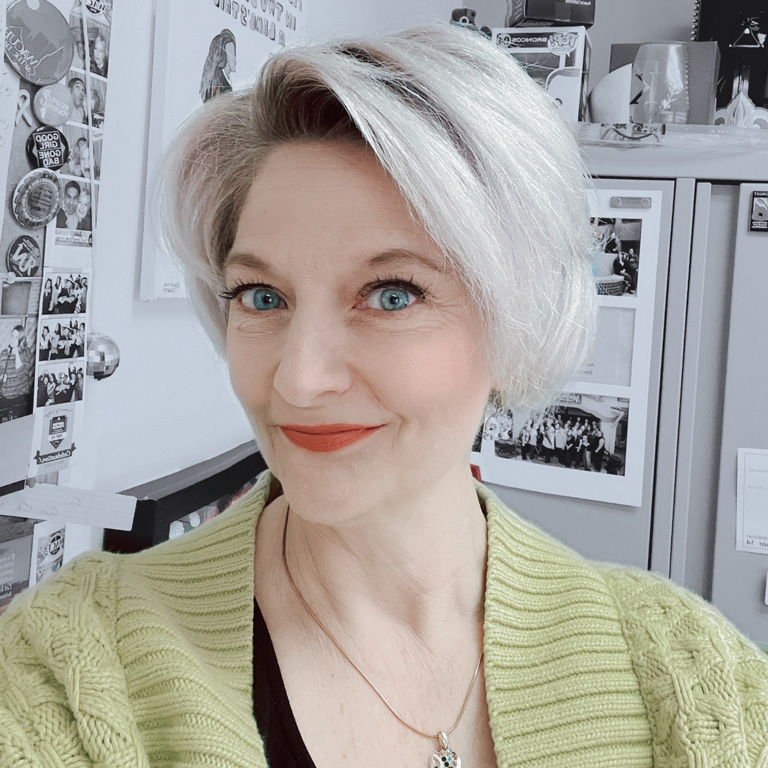 Kris McPeak, Director of Programs and Alumni Engagement - PCC FoundationKris is the Director of Programs and Alumni Engagement at the Pasadena City College Foundation. She oversees Foundation Scholarships, Community Excellence Grants, the Lancers for Life Student Ambassador Team, and the PCC Alumni Network, among many other Foundation programs. A “Recovering Student Life Professional,” Kris began her career in College Housing and worked in New Student Orientation before landing her Dream Job at PCC. During Kris’ 30-year career in Higher Education, she has supported and empowered students to tap into their potential, whether or not they know what it is.
Kris McPeak, Director of Programs and Alumni Engagement - PCC FoundationKris is the Director of Programs and Alumni Engagement at the Pasadena City College Foundation. She oversees Foundation Scholarships, Community Excellence Grants, the Lancers for Life Student Ambassador Team, and the PCC Alumni Network, among many other Foundation programs. A “Recovering Student Life Professional,” Kris began her career in College Housing and worked in New Student Orientation before landing her Dream Job at PCC. During Kris’ 30-year career in Higher Education, she has supported and empowered students to tap into their potential, whether or not they know what it is.
Kris received her BS in Secondary Education and her MEd in Counselor Education from the University of Arkansas. She’s worked at 8 other colleges in 7 different states. In her free time, Kris is an avid knitter and pop-culture enthusiast, hosting “The Top Five Podcast” with her sister and using movie lines to teach life lessons through her blog. -
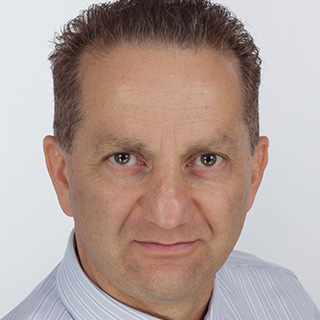 Avo Yousefian, Professor, Accounting - PCCAvo Yousefian graduated with a Master of Accountancy from CSULA and an MBA from the University of the People. He is a CPA and site coordinator for the PCC-VITA program which is collaborating in a partnership with CSUN-VITA as the nationwide largest volunteer income tax assistance program. He has been teaching at PCC since 2016 as a full-time faculty.
Avo Yousefian, Professor, Accounting - PCCAvo Yousefian graduated with a Master of Accountancy from CSULA and an MBA from the University of the People. He is a CPA and site coordinator for the PCC-VITA program which is collaborating in a partnership with CSUN-VITA as the nationwide largest volunteer income tax assistance program. He has been teaching at PCC since 2016 as a full-time faculty.
5:00 PM - 6:00 PM Research and Internship Panel
Watch live in-person in CC 201 or watch live on YouTube
-
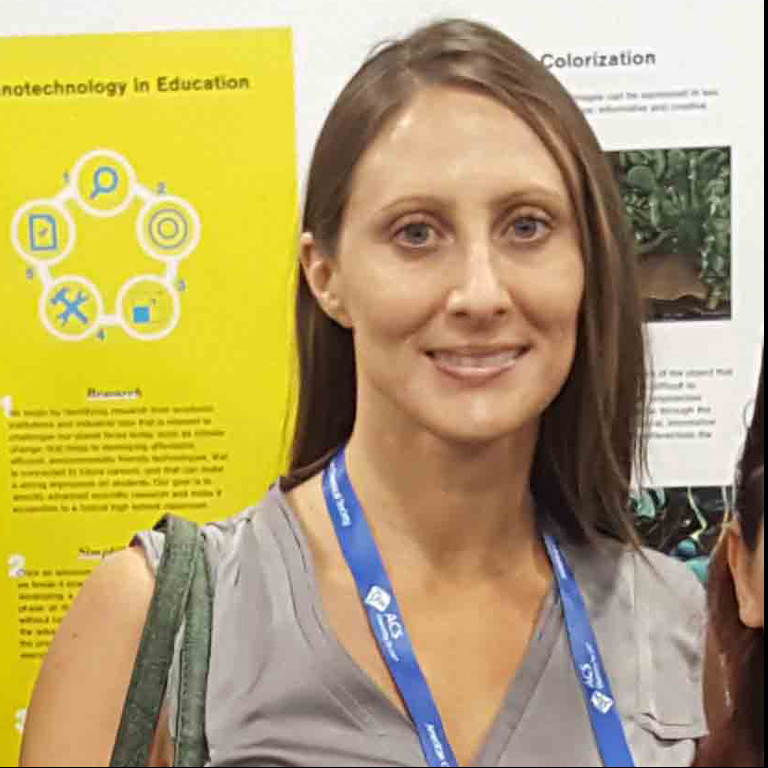 Jillian L. Blatti, Ph.D., Professor, Chemistry (Moderator) - PCCJillian L. Blatti, Ph.D., is an Associate Professor of Chemistry at Pasadena City College (PCC), where she teaches Organic Chemistry, General/Organic/Biochemistry, and the Environmental Sciences. She leads an undergraduate research group at PCC and her research focuses on bio/nanotechnology and the development of innovative educational activities that promote equity in science education and contribute to diversity in the STEM workforce. She is a Co-Principal Investigator on an NSF Future Manufacturing grant in collaboration with Caltech, UCLA, and UCSB that centers on the development of novel nucleic acid-based manufacturing technologies to fabricate materials of the future; Jillian leads the education and workforce development aspect of this effort. This includes training a diverse future STEM workforce with relevant skills and character traits for success in careers pertaining to science and education. Jillian was part of the algae biotechnology community as a graduate student at the University of California, San Diego, where her research aimed to engineer fatty acid biosynthesis in microalgae toward sustainable bioenergy. This is also where Jillian began her outreach program for underrepresented students focused on modern science and technology, which has evolved significantly throughout her time at PCC. Along with her research group, she has developed engaging laboratory activities regarding systems thinking and sustainability science, engineering algae and synthesizing algae biodiesel, making natural artistic paints and other endeavors at the art-science interface, and DNA nanotechnology; these lessons are implemented in her courses at PCC and in science outreach to underrepresented communities. Outside of science, her interests include music composition and performance, creating nanoart, exploring Nature, the Los Angeles Dodgers, and hanging out with her family and Bengal cat.
Jillian L. Blatti, Ph.D., Professor, Chemistry (Moderator) - PCCJillian L. Blatti, Ph.D., is an Associate Professor of Chemistry at Pasadena City College (PCC), where she teaches Organic Chemistry, General/Organic/Biochemistry, and the Environmental Sciences. She leads an undergraduate research group at PCC and her research focuses on bio/nanotechnology and the development of innovative educational activities that promote equity in science education and contribute to diversity in the STEM workforce. She is a Co-Principal Investigator on an NSF Future Manufacturing grant in collaboration with Caltech, UCLA, and UCSB that centers on the development of novel nucleic acid-based manufacturing technologies to fabricate materials of the future; Jillian leads the education and workforce development aspect of this effort. This includes training a diverse future STEM workforce with relevant skills and character traits for success in careers pertaining to science and education. Jillian was part of the algae biotechnology community as a graduate student at the University of California, San Diego, where her research aimed to engineer fatty acid biosynthesis in microalgae toward sustainable bioenergy. This is also where Jillian began her outreach program for underrepresented students focused on modern science and technology, which has evolved significantly throughout her time at PCC. Along with her research group, she has developed engaging laboratory activities regarding systems thinking and sustainability science, engineering algae and synthesizing algae biodiesel, making natural artistic paints and other endeavors at the art-science interface, and DNA nanotechnology; these lessons are implemented in her courses at PCC and in science outreach to underrepresented communities. Outside of science, her interests include music composition and performance, creating nanoart, exploring Nature, the Los Angeles Dodgers, and hanging out with her family and Bengal cat. -
 Evan Chou, Student, Computer Science - PCCEvan Chou is a 2nd-year Electrical Engineering student with a fervor for exploring the applications of AI and Machine Learning, and enjoys reading articles about the latest innovations in AGI and multimodal AI agent systems. In the 2024-2025 school year, he co-founded and became the President of the Artificial Intelligence and Machine Learning Club at PCC, a community where students of all different backgrounds and majors can learn about AI and its implications. Evan is also currently an AI Fellow in the Cerebras x BCV Fellowship program, where he is leveraging Cerebras Systems technology to accelerate real-world computational speeds of AI.
Evan Chou, Student, Computer Science - PCCEvan Chou is a 2nd-year Electrical Engineering student with a fervor for exploring the applications of AI and Machine Learning, and enjoys reading articles about the latest innovations in AGI and multimodal AI agent systems. In the 2024-2025 school year, he co-founded and became the President of the Artificial Intelligence and Machine Learning Club at PCC, a community where students of all different backgrounds and majors can learn about AI and its implications. Evan is also currently an AI Fellow in the Cerebras x BCV Fellowship program, where he is leveraging Cerebras Systems technology to accelerate real-world computational speeds of AI. -
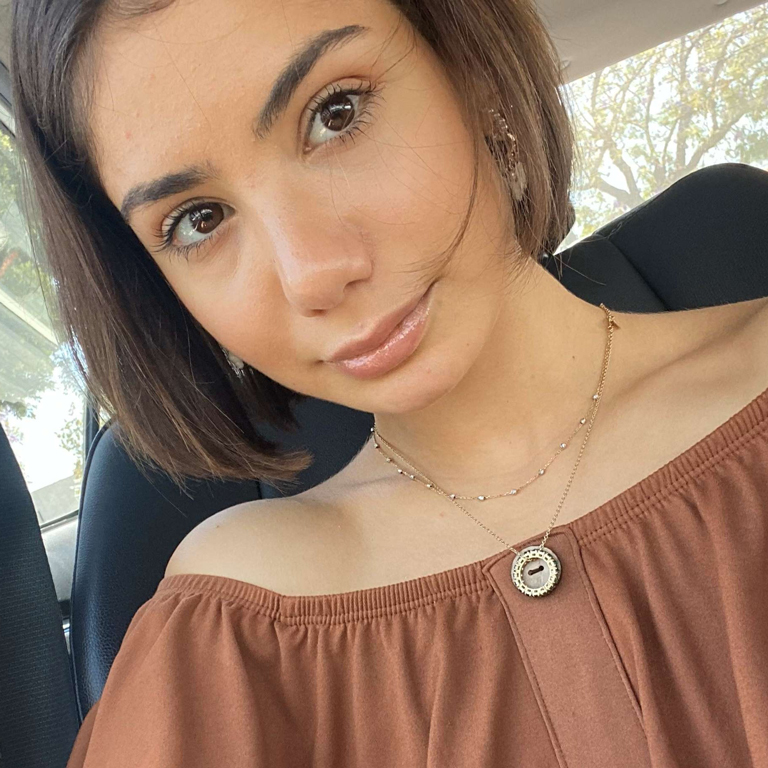 Cynthia Khosravian, Student, Natural Sciences - PCCCynthia Khosravian is a third year student at Pasadena City College. She is interested in both social and biological sciences and fascinated by genetics and DNA research. Introduced to the PCC Nanostars Research Program, Cynthia discovered the world of research and developed a better understanding of the ways in which DNA research can advance the world of personalized medicine. She’s looking forward to transferring to UCLA majoring in Human Biology and Society and minoring in Brain and Behavioral Health. She would love to be able to help people with physical and mental health issues in a holistic and personalized approach. Cynthia enjoys spending her free time listening to podcasts about health and well-being, reading historical and self help books, and baking sweets for family and friends. When not at school or tutoring, she’s most likely dancing or playing guitar.
Cynthia Khosravian, Student, Natural Sciences - PCCCynthia Khosravian is a third year student at Pasadena City College. She is interested in both social and biological sciences and fascinated by genetics and DNA research. Introduced to the PCC Nanostars Research Program, Cynthia discovered the world of research and developed a better understanding of the ways in which DNA research can advance the world of personalized medicine. She’s looking forward to transferring to UCLA majoring in Human Biology and Society and minoring in Brain and Behavioral Health. She would love to be able to help people with physical and mental health issues in a holistic and personalized approach. Cynthia enjoys spending her free time listening to podcasts about health and well-being, reading historical and self help books, and baking sweets for family and friends. When not at school or tutoring, she’s most likely dancing or playing guitar. -
 Ash Lopez, Author - CHANNEL KINDNESS: Stores of Community + KindnessAsh López is not a typical community college student. From caregiving to coding. Ash proudly brings her non-traditional background to academic spaces. She is a New York Times Bestselling Author with Lady Gaga for the book, “CHANNEL KINDNESS: Stores of Community + Kindness”. Ash is a Cornell Break Through Tech Alumni where she started her interest in AI and has since attended AI related programs at Northwestern + Harvard Edmond & Lily Safra Center for Ethics (IDEAS) and USC Viterbi School of Engineering. She currently runs a small tech consulting firm and serves as the AnitaB.org (Grace Hopper Conference) Undergraduate Board Trustee while she continues her studies. Ash has been featured in Paper Magazine, the MTV Music Awards, and the United Nations and Honor 21.
Ash Lopez, Author - CHANNEL KINDNESS: Stores of Community + KindnessAsh López is not a typical community college student. From caregiving to coding. Ash proudly brings her non-traditional background to academic spaces. She is a New York Times Bestselling Author with Lady Gaga for the book, “CHANNEL KINDNESS: Stores of Community + Kindness”. Ash is a Cornell Break Through Tech Alumni where she started her interest in AI and has since attended AI related programs at Northwestern + Harvard Edmond & Lily Safra Center for Ethics (IDEAS) and USC Viterbi School of Engineering. She currently runs a small tech consulting firm and serves as the AnitaB.org (Grace Hopper Conference) Undergraduate Board Trustee while she continues her studies. Ash has been featured in Paper Magazine, the MTV Music Awards, and the United Nations and Honor 21. -
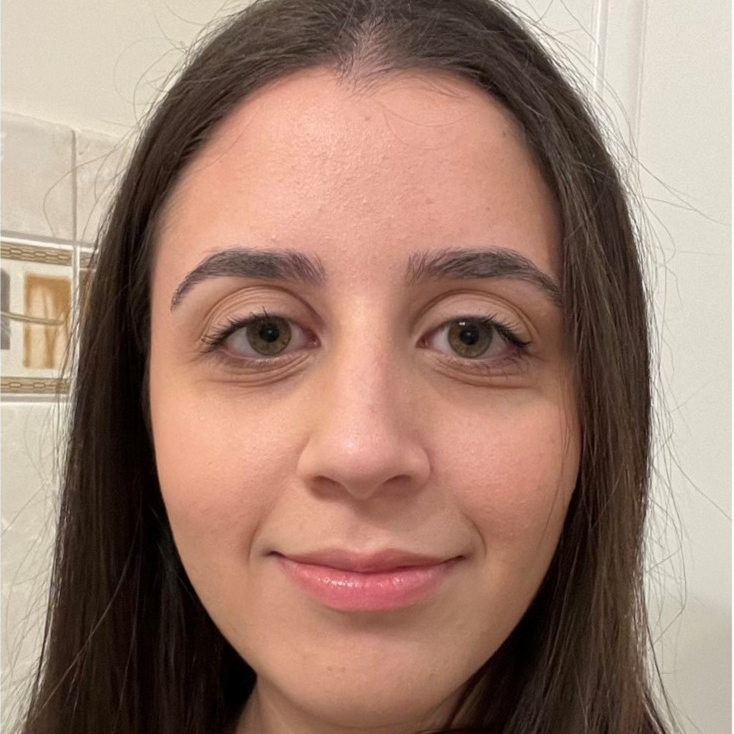 Emily Terkazaryan, Student, Molecular, Cell, and Developmental Biology - UCLAEmily Terkazaryan is a first-generation, third-year transfer student at UCLA, where she is pursuing a degree in Molecular, Cell, and Developmental Biology. Her passion for research was ignited during her time at Pasadena City College (PCC) by the 2024 nanostar program, during which she investigated the properties and localization abilities of DNA condensates under the guidance of Dr. Jillian Blatti. She hopes to continue outreach efforts alongside Dr. Blatti to speak about the research that was accomplished through the program, as well as the burgeoning field of nucleic acid nanotechnology and its accessibility to a diverse group of interested students. Currently, she is a member of Dr. Jaimie Stewart’s lab at UCLA, applying what she learned in the PCC nanostar program to RNA-based condensates for cell delivery. Outside of her academic life, her interests include reading, trying different matcha spots with her friends, and watching Formula One.
Emily Terkazaryan, Student, Molecular, Cell, and Developmental Biology - UCLAEmily Terkazaryan is a first-generation, third-year transfer student at UCLA, where she is pursuing a degree in Molecular, Cell, and Developmental Biology. Her passion for research was ignited during her time at Pasadena City College (PCC) by the 2024 nanostar program, during which she investigated the properties and localization abilities of DNA condensates under the guidance of Dr. Jillian Blatti. She hopes to continue outreach efforts alongside Dr. Blatti to speak about the research that was accomplished through the program, as well as the burgeoning field of nucleic acid nanotechnology and its accessibility to a diverse group of interested students. Currently, she is a member of Dr. Jaimie Stewart’s lab at UCLA, applying what she learned in the PCC nanostar program to RNA-based condensates for cell delivery. Outside of her academic life, her interests include reading, trying different matcha spots with her friends, and watching Formula One. -
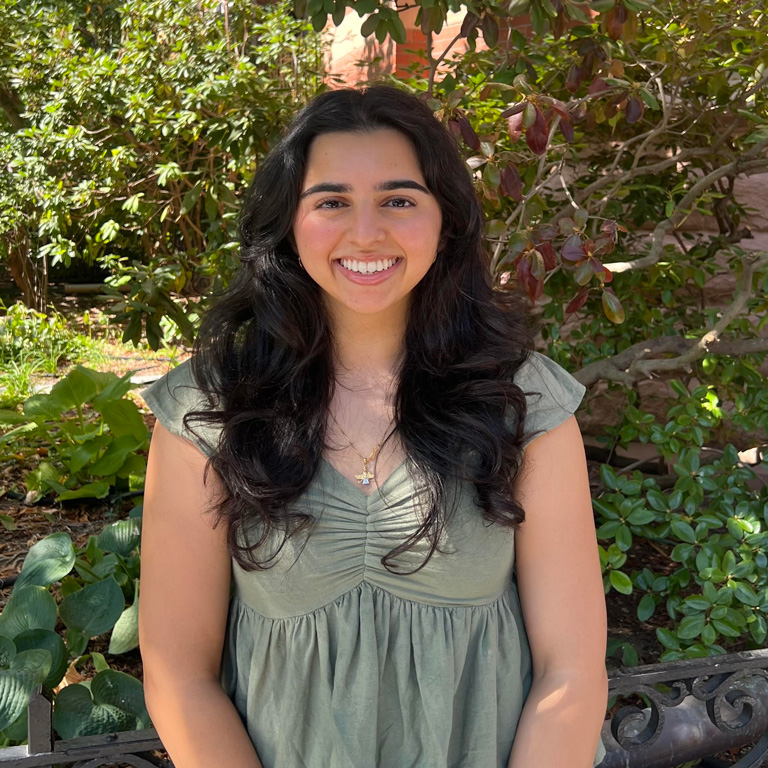 Daisy Pithawalla, Business Psychology - UCSD
Daisy Pithawalla, Business Psychology - UCSDDaisy Pithawalla is a graduate of the University of California, San Diego (UCSD), where she earned a degree in Business Psychology in 2024. She began her academic journey at Pasadena City College (PCC) before transferring to UCSD. In the summer of 2022, she was part of the first cohort research group focused on creating DNA nanostars, a groundbreaking project that explored innovative approaches to nanotechnology. Her team's research was showcased at the LMU West Coast Biological Sciences Undergraduate Research Conference in 2023, where they presented their findings to a broad audience of scholars and professionals.
Day 2 Schedule
(CC 201)
Watch live in-person in CC 201 or watch live on YouTube
12:30 PM - 1:10 PM Check-In & Refreshments
1:10 PM - 1:15 PM Pi Day 2025 Welcoming Remarks
Watch live in-person in CC 201 or watch live on YouTube
-
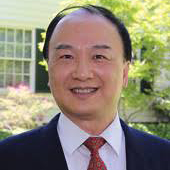 Dr. Thomas Hou, Charles Lee Powell Professor, Applied Computational Mathematics (Co-Moderator) - CaltechThomas Yizhao Hou is the Charles Lee Powell professor of applied and computational mathematics at Caltech. He received his BS from South China University of Technology in 1982, his Ph.D. from UCLA in 1987, and became a tenure track assistant professor in 1989 at the Courant Institute. He moved to Caltech in 1993 and was named the Charles Lee Powell Professor in 2004. Dr. Hou has received a number of honors and awards. He was elected to be Member of the National Academy of Sciences in 2024, Fellow of American Academy of Arts and Sciences in 2011, SIAM Fellow in 2009 and AMS Fellow in 2012. He received the William Benter Prize in Applied Mathematics in 2024, the SIAM Ralph E. Kleinman Prize in 2023, the SIAM Outstanding Paper Prize in 2018, the SIAM Review SIGEST Award in 2019, the Computational and Applied Sciences Award from USACM in 2005, the Morningside Gold Medal in Applied Mathematics in 2004, the SIAM Wilkinson Prize in Numerical Analysis and Scientific Computing in 2001, the Frenkiel Award from the Division of Fluid Mechanics of American Physical Society in 1998, the Feng Kang Prize in Scientific Computing in 1997, the Sloan Research Fellow from 1990 to 1992.
Dr. Thomas Hou, Charles Lee Powell Professor, Applied Computational Mathematics (Co-Moderator) - CaltechThomas Yizhao Hou is the Charles Lee Powell professor of applied and computational mathematics at Caltech. He received his BS from South China University of Technology in 1982, his Ph.D. from UCLA in 1987, and became a tenure track assistant professor in 1989 at the Courant Institute. He moved to Caltech in 1993 and was named the Charles Lee Powell Professor in 2004. Dr. Hou has received a number of honors and awards. He was elected to be Member of the National Academy of Sciences in 2024, Fellow of American Academy of Arts and Sciences in 2011, SIAM Fellow in 2009 and AMS Fellow in 2012. He received the William Benter Prize in Applied Mathematics in 2024, the SIAM Ralph E. Kleinman Prize in 2023, the SIAM Outstanding Paper Prize in 2018, the SIAM Review SIGEST Award in 2019, the Computational and Applied Sciences Award from USACM in 2005, the Morningside Gold Medal in Applied Mathematics in 2004, the SIAM Wilkinson Prize in Numerical Analysis and Scientific Computing in 2001, the Frenkiel Award from the Division of Fluid Mechanics of American Physical Society in 1998, the Feng Kang Prize in Scientific Computing in 1997, the Sloan Research Fellow from 1990 to 1992. -
 Dr. Veronica I. Jaramillo, Dean of Natural Sciences Division (Co-Moderator) - PCC
Dr. Veronica I. Jaramillo, Dean of Natural Sciences Division (Co-Moderator) - PCCDr. Veronica I. Jaramillo’s background in chemistry and mathematics, and interest in equitable education, have fostered her career in the community college. Dr. Jaramillo began her academic path at Moravian College earning a bachelor’s degrees in both mathematics and Chemistry. She then continued her studies at the University of Arizona where she earned her doctorate in Physical Chemistry. Her thesis involved the study of low temperature reaction dynamics of important chemical reactions in the stratosphere. After, Dr. Jaramillo worked at a startup company, Calhoun Vision, where she developed irradiation systems and techniques. Then she followed her passion for teaching and has been a chemistry faculty for the last 15 years at the community college and is currently the Dean of Natural Sciences at Pasadena City College. Dr. Jaramillo has been the principal investigator on a NSF grant devoted to incorporating early research experience for community college students. She has published a chapter and papers devoted to improving Chemical Education. Dr. Jaramillo has also been dedicated to community science outreach and has been an active member of the American Chemical Society (ACS) on both the local and national level. Dr. Jaramillo was awarded the Agnes Anne Green Distinguished Service award and honored as a 2021 ACS fellow in recognition for her research, extensive work with students in science education, and her impact on diversity in the STEM workforce through work with minority and economically disadvantaged students, as well as for her excitement, enthusiasm, and innovation of chemistry outreach through her service on the ACS Committee on Community Activities and to the Southern California local section.
1:15 PM - 1:30 PM Bio-inspired Aerial Robotics – Jet Propulsion in Animal Flight
Watch live in-person in CC 201 or watch live on YouTube
-
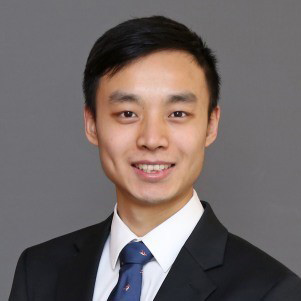 Xiaozhou Fan, Postdoctoral Scholar - CaltechXiaozhou Fan is a postdoctoral scholar at Caltech GALCIT. His current research focuses on flow sensing using data-driven approaches and the flight control of fixed-wing aircraft in extreme wind conditions. He earned his Ph.D. from Brown University, where he computationally models the dynamics of animal flight and experimentally built a bat-inspired robotic platform to studying of appendage-based jet propulsion.
Xiaozhou Fan, Postdoctoral Scholar - CaltechXiaozhou Fan is a postdoctoral scholar at Caltech GALCIT. His current research focuses on flow sensing using data-driven approaches and the flight control of fixed-wing aircraft in extreme wind conditions. He earned his Ph.D. from Brown University, where he computationally models the dynamics of animal flight and experimentally built a bat-inspired robotic platform to studying of appendage-based jet propulsion.
1:30 PM - 2:00 PM The Power of AI: Foundation Models and Their Impact on Science and Engineering
Watch live in-person in CC 201 or watch live on YouTube
-
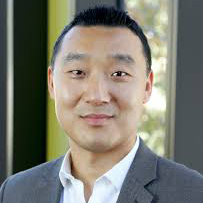 Dr. Yisong Yue, Professor, Computing and Mathematical Sciences - CaltechYisong Yue is a Professor of Computing and Mathematical Sciences at the California Institute of Technology. He was previously a research scientist at Disney Research. Before that, he was a postdoctoral researcher in the Machine Learning Department and the iLab at Carnegie Mellon University. He received a Ph.D. from Cornell University and a B.S. from the University of Illinois at Urbana-Champaign. Yisong is also the General Chair of ICLR 2025 (International Conference on Learning Representations).
Dr. Yisong Yue, Professor, Computing and Mathematical Sciences - CaltechYisong Yue is a Professor of Computing and Mathematical Sciences at the California Institute of Technology. He was previously a research scientist at Disney Research. Before that, he was a postdoctoral researcher in the Machine Learning Department and the iLab at Carnegie Mellon University. He received a Ph.D. from Cornell University and a B.S. from the University of Illinois at Urbana-Champaign. Yisong is also the General Chair of ICLR 2025 (International Conference on Learning Representations).
Yisong's research interests are centered around machine learning, and in particular getting theory to work in practice. To that end, his research agenda spans both fundamental and applied pursuits, from novel learning-theoretic frameworks all the way to deployment in autonomous driving on public roads. His work has been recognized with multiple paper awards and nominations, including in robotics, computer vision, sports analytics, machine learning for health, and information retrieval. During his time in industry, Yisong worked on machine learning approaches to behavior modeling and motion planning for autonomous driving.
2:00 PM - 2:30 PM Green AI: Making Artificial Intelligence Sustainable
Watch live in-person in CC 201 or watch live on YouTube
-
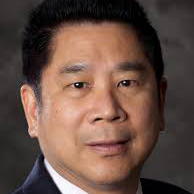 Dr. Jay Kuo, Ming Hsieh Chair Professor, Electrical Computer Engineering and Computer Science - USCDr. Jay Kuo is the Ming Hsieh Chair Professor, a Distinguished Professor of Electrical and Computer Engineering and Computer Science, and the Director of the Multimedia Communication Laboratory (MCL) at the University of Southern California. He is a Fellow of AAAS, ACM, IEEE, SPIE, the National Academy of Inventors (NAI), and an Academician of Academia Sinica.
Dr. Jay Kuo, Ming Hsieh Chair Professor, Electrical Computer Engineering and Computer Science - USCDr. Jay Kuo is the Ming Hsieh Chair Professor, a Distinguished Professor of Electrical and Computer Engineering and Computer Science, and the Director of the Multimedia Communication Laboratory (MCL) at the University of Southern California. He is a Fellow of AAAS, ACM, IEEE, SPIE, the National Academy of Inventors (NAI), and an Academician of Academia Sinica.
2:30 PM - 3:00 PM AI, Machine Learning, and Mathematical Science
Watch live in-person in CC 201 or watch live on YouTube
-
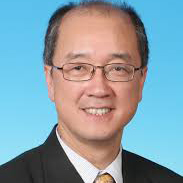 Dr. Tony Chan, Former President of KAUST and HKUST
Dr. Tony Chan, Former President of KAUST and HKUSTProfessor Tony Chan served as the third president of KAUST from 2018 to 2024, leading the university into its second decade with significant growth in faculty and students, while expanding research focus to include digital and health sciences. He launched new initiatives in Artificial Intelligence and Smart Health, and bolstered KAUST’s impact on innovation, entrepreneurship, and knowledge transfer, aligning with Saudi Arabia’s Vision 2030. His leadership strengthened KAUST’s global and national visibility, culminating in a strategic plan to accelerate the university’s impact both locally and globally through commercialization efforts.
Prior to KAUST, Professor Chan was president of HKUST from 2009 to 2018, guiding the university to be ranked Asia’s number one by QS for three consecutive years. He championed interdisciplinary studies, led major fundraising campaigns establishing over 50 endowed professorships, and oversaw the construction of key infrastructure projects, including the Shaw Auditorium. Before HKUST, he held leadership roles at the US National Science Foundation and UCLA, with early academic appointments at Yale and Caltech. An elected member of the US National Academy of Engineering, he holds degrees from Caltech and Stanford and has served on numerous advisory boards worldwide.
3:00 PM - 3:30 PM Ethical Issues and Challenges of AI
Watch live in-person in CC 201 or watch live on YouTube
-
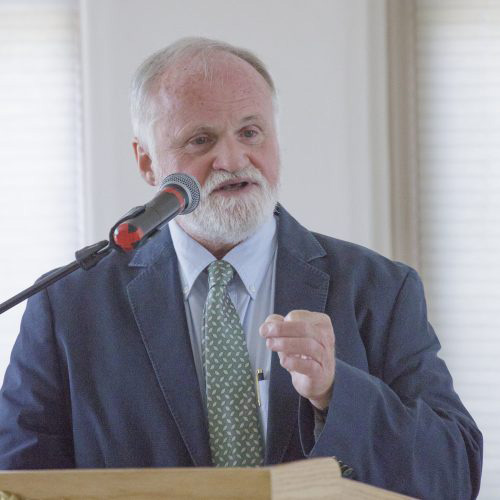 Dr. Martin Verhoeven, Professor - Dharma Realm Buddhist UniversityDr. Martin J. Verhoeven received his MA in history (1971) from the University of Wisconsin-Madison, was a visiting scholar at Stanford under a Ford Fellowship, and completed his PhD at the University of Wisconsin-Madison on the American encounter with Asian religions. Verhoeven's background includes both academic study of history and various philosophical traditions and East Asian contemplative practice. His particular areas of interest are the historical teachings of Buddhism, the translation of Buddhist texts into modern English, and the process of religious acculturation. He is currently the dean of academics at Dharma Realm Buddhist University.
Dr. Martin Verhoeven, Professor - Dharma Realm Buddhist UniversityDr. Martin J. Verhoeven received his MA in history (1971) from the University of Wisconsin-Madison, was a visiting scholar at Stanford under a Ford Fellowship, and completed his PhD at the University of Wisconsin-Madison on the American encounter with Asian religions. Verhoeven's background includes both academic study of history and various philosophical traditions and East Asian contemplative practice. His particular areas of interest are the historical teachings of Buddhism, the translation of Buddhist texts into modern English, and the process of religious acculturation. He is currently the dean of academics at Dharma Realm Buddhist University.
3:30 PM - 4:30 PM Panel Discussion & Networking
Watch live in-person in CC 201 or watch live on YouTube
-
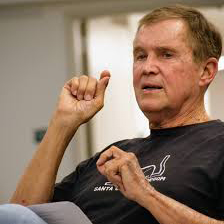 Douglas Powers, Professor, Interim President - Dharma Realm Buddhist UniversityDoug Powers is currently a professor and interim president of finance and administration at Dharma Realm Buddhist University (DRBU). He teaches topics ranging from Buddhist sutras to Western philosophical treatises. Versed in both Western philosophy and Buddhist thought, Powers is constantly exploring how Buddhism can engage with the modern mind. He holds an MA in philosophy and religion from the Graduate Theological Union and an MAT in political science from the University of Redlands.
Douglas Powers, Professor, Interim President - Dharma Realm Buddhist UniversityDoug Powers is currently a professor and interim president of finance and administration at Dharma Realm Buddhist University (DRBU). He teaches topics ranging from Buddhist sutras to Western philosophical treatises. Versed in both Western philosophy and Buddhist thought, Powers is constantly exploring how Buddhism can engage with the modern mind. He holds an MA in philosophy and religion from the Graduate Theological Union and an MAT in political science from the University of Redlands.
Resources for Your Pi Day Poster/Presentation
- If you'd like the Pi Club to print your digital poster, please email us here. (Recommended poster size: 20" x 32" or 40" x 32")
- For more examples of Pi Day posters click here.
- "Want to be a great storyteller? First, break these habits"
- Learn to condense your research story into a Three Minute Thesis
- Avoid "Death by PowerPoint"
- Prepare your own "TEDx Talk"
- Watch other undergraduate research pitch competition videos
Examples of Pi Day Posters:
Chance to Win a Gift Card
Every instructor and student who submits their Pi Day survey online will have a chance to win a gift card. Deadline: TBA
T-Shirt Design Contest!
Participate in the T-Shirt Design Contest to win a gift certificate up to $100!
- Theme for Pi Day T-Shirt 2025: "I can do it!" (3 colors maximum)
- T-Shirt Design Submission Deadline: TBA
Every poster-participating student and instructor will receive a certificate in the award ceremony, receive one raffle ticket, and will be entered for a chance to win a gift certificate up to $100.
